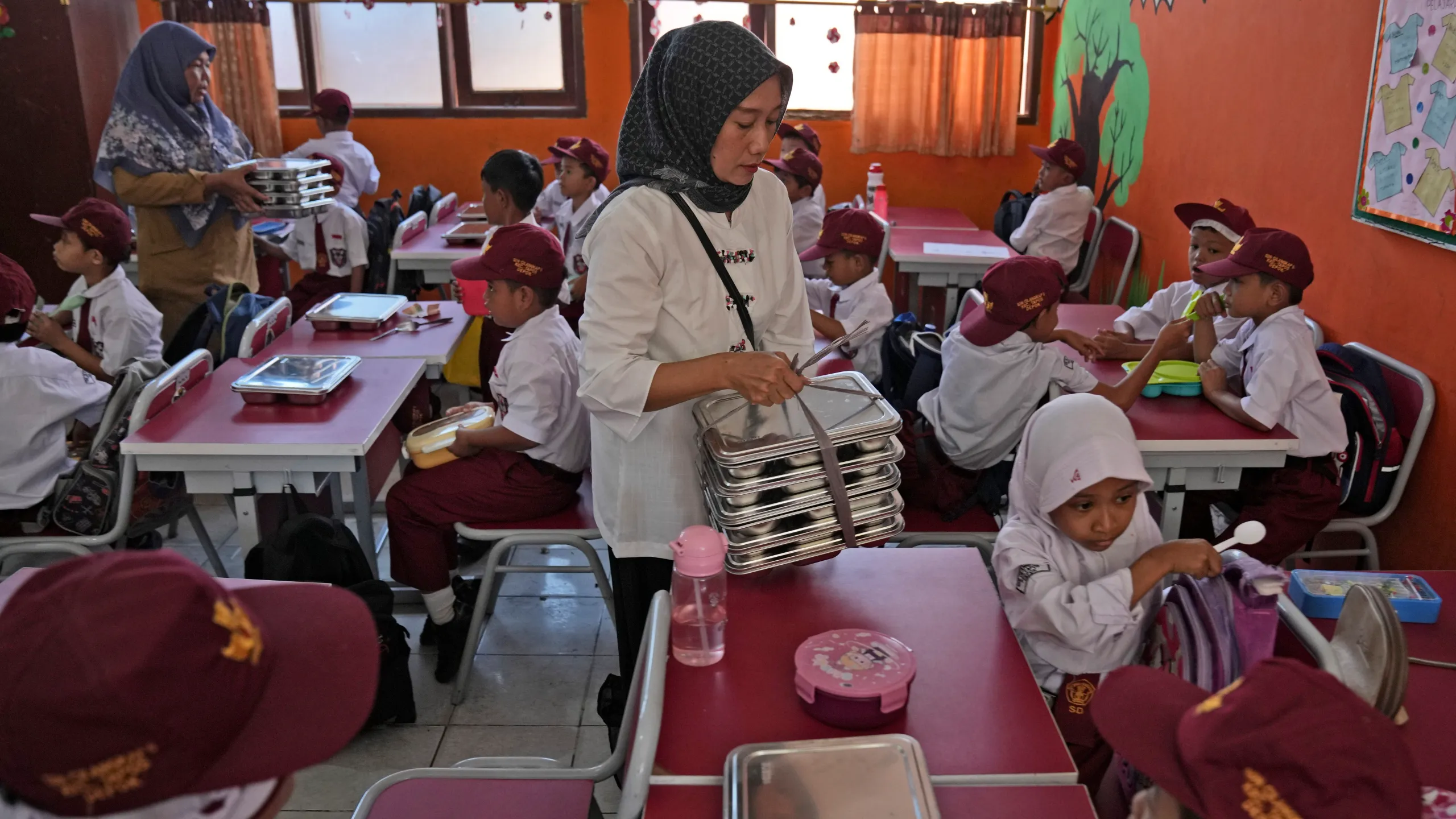
Indonesia starts giving kids and pregnant women free meals to stop them from stunting
Indonesia has started a program to give kids and pregnant women free food to help them eat better and fight stunting.
The government of Indonesia has started a big $28 million plan to help nearly 90 million children and pregnant women who are malnourished or short for their age.
President Prabowo Subianto made this promise during his campaign. The Free Nutritious Meal program is part of that promise. Subianto was elected last year to lead Indonesia, which has more than 282 million people and Southeast Asia’s biggest economy.
Subianto’s government has stressed how important it is to fight stunting, which affects 21.5% of kids younger than 5 years old. They have also talked about how the program could help farms by making their crops more valuable.
Subianto promised to boost Indonesia’s GDP growth from 5% to 8% as part of the plan to improve the nutrition of the country’s children. In his October inauguration speech, Subianto said that many children in the country are malnourished and don’t have food or school materials, among other things.
He stated that 83 million students in more than 400,000 schools across Indonesia would get free school lunches and milk as part of a long-term plan to develop the country’s human resources. The ultimate goal is to have a “Golden Indonesia” generation by 2045.
Too many of our brothers and sisters live below the poverty line, and too many kids go to school without food or clothes that fit, which is a very sad fact, Subianto said. It is estimated that the program will cost more than 450 trillion rupiah, which is about $28 billion.
Subianto has said that the estimates have been done carefully and that the government is able to run such a big program, even though it costs a lot.
By 2025, the Free Nutritious Meal program wants to reach 19.47 million schoolchildren and pregnant women. It will cost about 71 trillion rupiah ($4.3 billion), which is what the government needs to do to keep the national debt below the legal limit of 3% of GDP.
One of the people in charge of the new National Nutrition Agency, Dadan Hindayana, talked about the resources for the program. These include 6.7 million tons of rice, 1.2 million tons of chicken, 500,000 tons of beef, 1 million tons of fish, veggies, fruit, and 4 million kiloliters of milk. Also, the government wants to open at least 5,000 kitchens across the country.
A truck with about 3,000 food portions showed up at SD Cilangkap 08 on Monday. This is a primary school in Depok, a Jakarta satellite city. Plates of rice, stir-fried vegetables, tempeh, stir-fried chicken, and oranges were given to the 740 kids.
“Every day, we send a team to each school to make sure that the meals get to the students,” Hindayana said, adding that the program will make sure that every student, from preschool to senior high school, gets one meal a day.
The meals will give kids about a third of the calories they need every day, and the government will pay for them themselves.
Even though the program has a lot of support from regular people, investors and experts have criticized it. They think it won’t be able to be funded and that it will be very hard to run.
An economist from the Center of Economic and Law Studies named Nailul Huda was worried about Indonesia’s tight fiscal conditions. He said that the country’s state finances are not strong enough to handle the fiscal load, which could cause the national debt to rise.
Huda said that the program might have more costs than benefits, which means that the government might not be able to meet its 8% growth goal while also handling the economic stress of such a big program.
Furthermore, Huda said that the program might make Indonesia’s current account deficit worse, since the country already imports a lot of rice, wheat, soybeans, beef, and dairy goods.
But Reni Suwarso, who runs the Institute for Democracy, Security, and Strategic Studies, stressed how important it was to deal with the country’s stunting problem right away, since it is still a long way from the 14% reduction goal set for 2024.
The 2023 Indonesian Health Survey says that 21.5% of children in Indonesia are stunted, which is 0.8% less than the previous year. It is thought by UNICEF that one in twelve Indonesian children under five are undersized and one in five are wasted.
Suwarso said, “That’s so bad and must be solved!” to emphasize how important it was to deal with child malnutrition. Child malnutrition is very bad for babies and little kids all over the country because it threatens their health and long-term growth.
All Categories
Recent Posts
Tags
+13162306000
zoneyetu@yahoo.com



